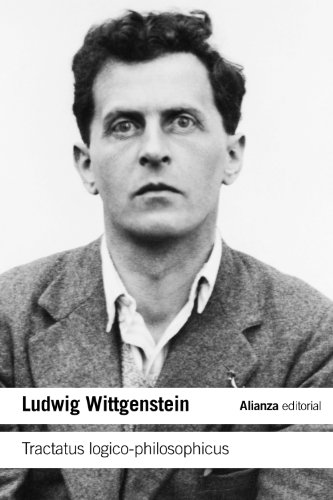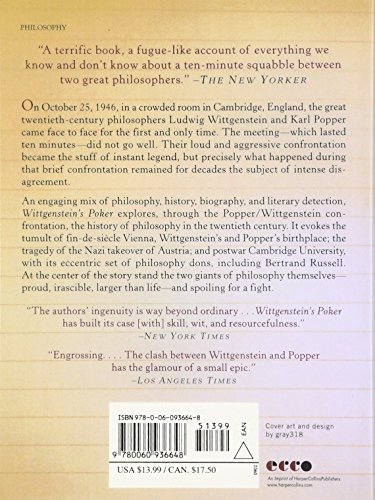Tractatus Logico-Philosophicus (Spanish Edition)
Category: ludwig wittgenstein

As Bertrand Russell noted in the preface to the 1922 English translation, reproduced in this edition, the "Tractatus Logico-Philosophicus" "deserves, by its intent, subject, and depth, to be regarded as an event of the utmost importance in the philosophical world." This key work by Ludwig Wittgenstein (1889-1951), simultaneously clear and difficult, tense and rigorous, offers in an aphoristic language, worthy of the best German prose, a philosophy of language and mathematics, a reflection on the nature and activity of philosophy, and a conception of the world.
The "Tractatus Logico-Philosophicus" is a highly influential and challenging work that has had a profound impact on the development of analytic philosophy. Written in a concise and dense style, Wittgenstein presents his views on the limits of language and the nature of reality. He argues that the world is composed of facts, not things, and that language is a means of representing these facts. The work is structured in a series of numbered propositions, which build upon each other to create a complex and intricate philosophical system.
One of the central themes of the "Tractatus" is the idea of the "limits of language." Wittgenstein argues that language can only represent the world of facts, and that anything beyond this, such as metaphysical or ethical questions, is beyond the scope of language and cannot be meaningfully expressed. This idea has had a significant influence on the development of logical positivism and the logical-empiricist movement, which sought to limit philosophical inquiry to what could be empirically verified.
Another key aspect of the "Tractatus" is Wittgenstein's conception of the nature of philosophy itself. He sees philosophy not as a body of knowledge or a set of theories, but rather as a activity of clarification and the elucidation of logical form. For Wittgenstein, the role of the philosopher is not to provide answers to philosophical problems, but to dissolve these problems by showing that they are based on a misunderstanding of the logical structure of language.
Despite its difficulty and complexity, the "Tractatus Logico-Philosophicus" remains a highly influential and important work in the history of philosophy. It has been the subject of intense debate and interpretation, and continues to be a source of inspiration and controversy for philosophers and thinkers from a wide range of disciplines.
product information:
| Attribute | Value | ||||
|---|---|---|---|---|---|
| publisher | Alianza Editorial; edición (May 2, 2012) | ||||
| language | Spanish | ||||
| paperback | 192 pages | ||||
| isbn_10 | 8420671819 | ||||
| isbn_13 | 978-8420671819 | ||||
| item_weight | 5.6 ounces | ||||
| dimensions | 4.72 x 0.35 x 7.09 inches | ||||
| best_sellers_rank | #476,482 in Books (See Top 100 in Books) #347 in Philosophy of Logic & Language #1,013 in Philosophy Movements (Books) #1,817 in Western Philosophy | ||||
| customer_reviews |
|




















